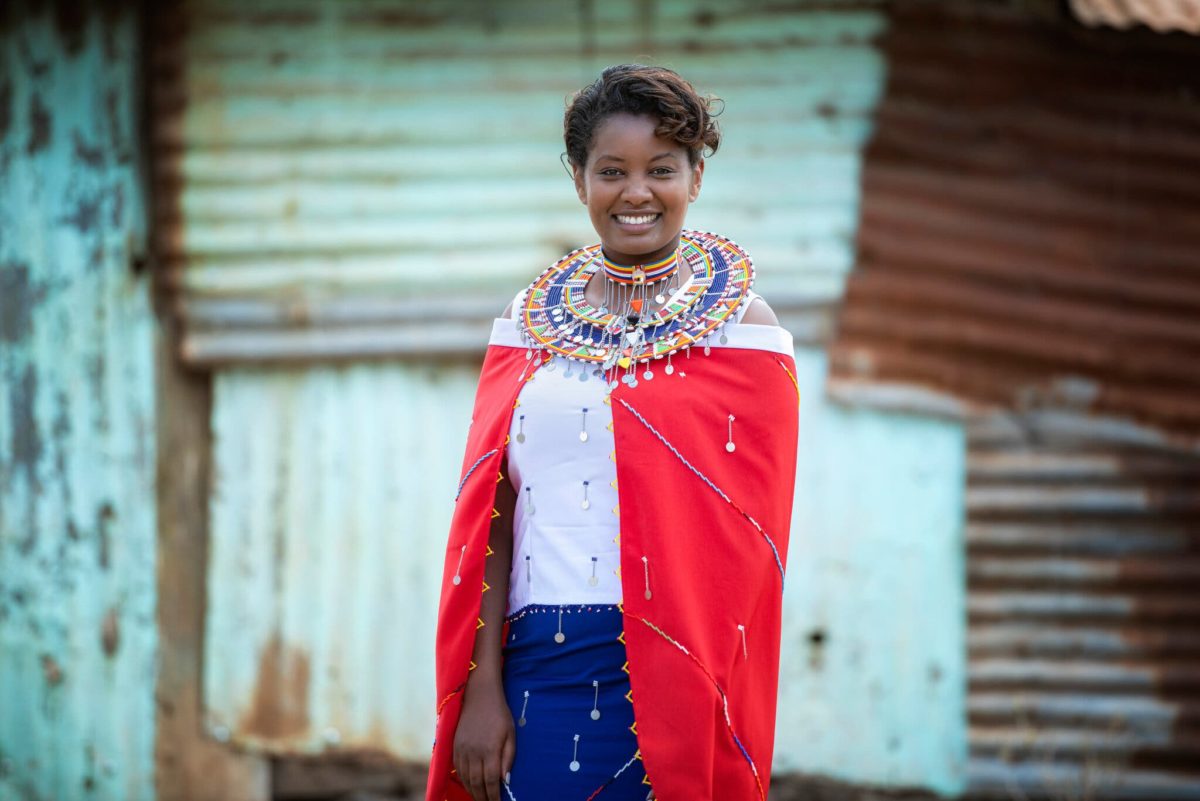This Kenyan Activist Said No to ‘the Cut’

They could see my life. They could see that I was the first girl in our village to go to college, and that, even without the cut, I was healthy and happy.”
Nice Nailantei Leng’ete, 2016 Fellowship Alumna, Kenya
Growing up in a rural Maasai community, 2016 Fellowship Alumna Nice Nailantei Leng’ete of Kenya observed other young women getting “the cut” and how the practice was a deep-set aspect of cultural ideals of womanhood. The practice is banned in Kenya, but elders stated that without it, women cannot marry or have children.
“Their families are shamed,” Leng’ete writes, “and the girls are outcasts.” Before she came along, every female member of her family had undergone the procedure. By the time she was 6, Leng’ete knew she didn’t want to be like them. This didn’t just make her an oddity in her community, it placed her life at risk. But, as she observes in her memoir, The Girls in the Wild Fig Tree, it was the tradition that deserved to die.
Learn more about Nice’s story in this book review from The New York Times.
Next Story
University of California, Davis
2021 Mandela Washington Fellows